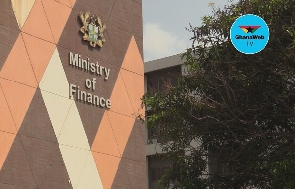The Ministry of Finance is optimistic of a rebound in the economy through the Post-COVID-19 Programme for Economic Growth (PC-PEG).
The programme is a blueprint prepared to restore macroeconomic stability, promote debt sustainability, and sustained economic recovery anchored on structural reforms to promote efficiency and competitiveness.
Mr. Thomas Appiadjei, the Director of Budget at the Ministry, said the IMF US$ 3 billion Extended Credit Facility had started yielding results.
In addition, to boosting resilience to economic shocks, it will also improve the country’s sovereign credit ratings, and regain access to international capital markets.
Mr. Appiadjei disclosed this at the opening of a two-day Budget Conference for Budget Analysts and Officers in the Central Regional.
It was attended by 163 Budget Analysts selected from the 22 Metropolitan, Municipal, and District Assemblies in the Region.
It was aimed at building the capacity of participants for knowledge enhancement, networking, and best practice dissemination.
The programme was thoughtfully arranged by the Budget Analysts Association of Ghana with keynote presentations, panel discussions, and networking sessions for the two days.
The participants were taken through major topics, including programme-based budgeting budget preparation and related challenges, financial data analysis, revenue mobilization strategies, report and minutes writing, and service delivery standards.
Through that, it is expected to re-anchor low inflation to improve the exchange rate regime, restore investor confidence, re-establish market access, and open new funding sources.
However, Mr. Appiadjei indicated that recent years had been challenging dealing with a depressed economy orchestrated by local and external economic shock waves.
That situation had affected revenue mobilization, increased expenditures, and adversely impacted debt management.
He said Ghana had received the initial instalment of $600 million from the $3 billion IMF Extended Credit Facility but warned that the country was not out of the woods yet concerning the current economic challenges.
He urged Ghanaians to rise and support the government in its efforts to restructure the economy.
“Everyone has a part to play, but the onus lies with us as Budget Analysts and Officers to lead the process of ensuring that the country once again bounces back better and achieves the envisaged economic transformation,” he said.
Giving an overview of the maiden Conference, Mr. Bless Dakeh, the Regional Budget Analyst, said the conference was to foster collaboration and build a strong network of budget professionals across the Region.
The relationships established will serve as a foundation for continuous learning and support as we navigate the complexities of budget management in our respective MMDAs, he said.
Moreover, we will have the privilege of learning from the experiences of successful case studies shared by our fellow MMDAs. By adopting innovative approaches and adapting them to our unique contexts, we can drive positive change and make a meaningful impact in our Assemblies.
Business News of Saturday, 29 July 2023
Source: GNA
Economy will rebound with post-COVID-19 recovery programme – Finance Ministry
Entertainment












